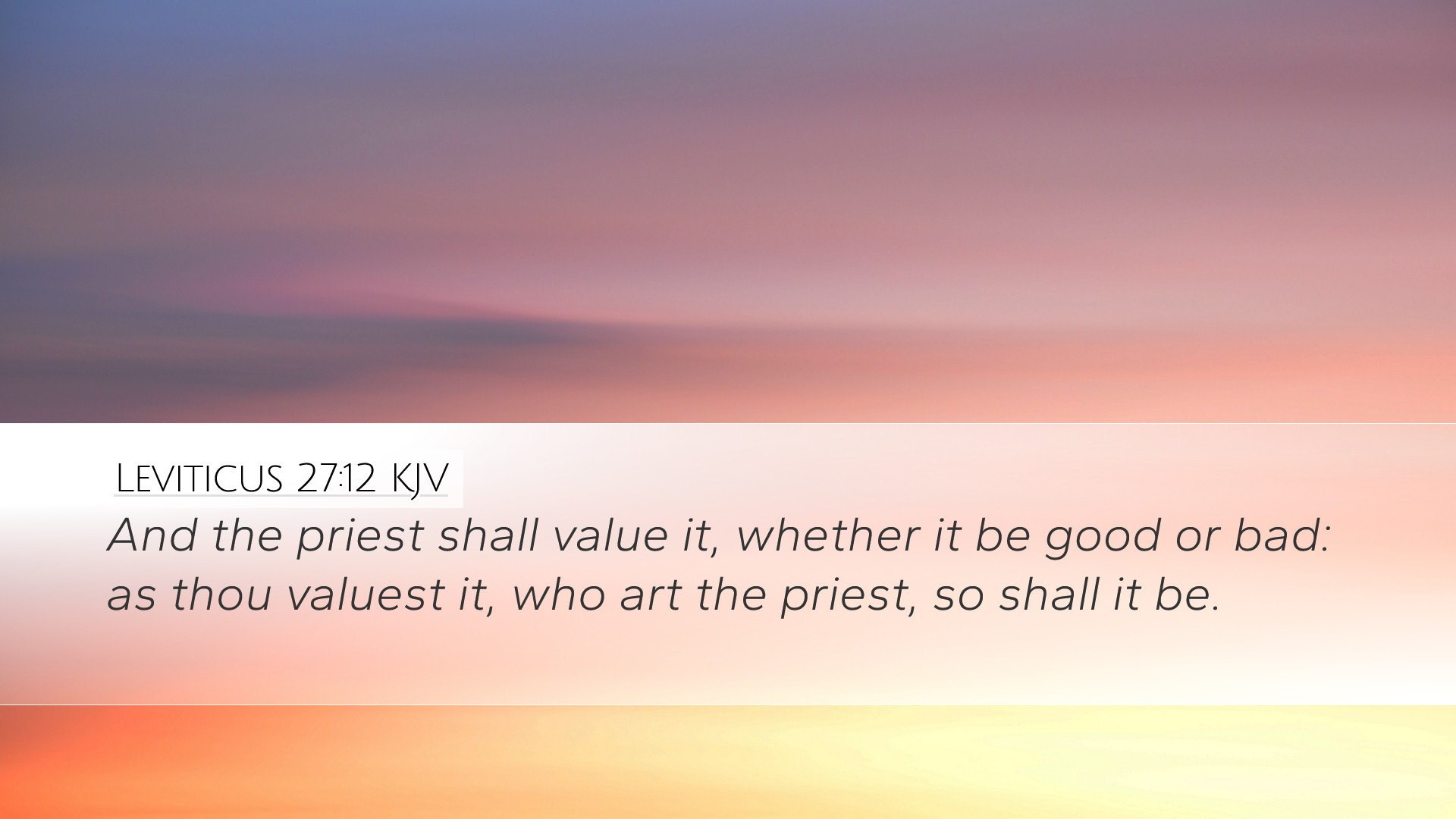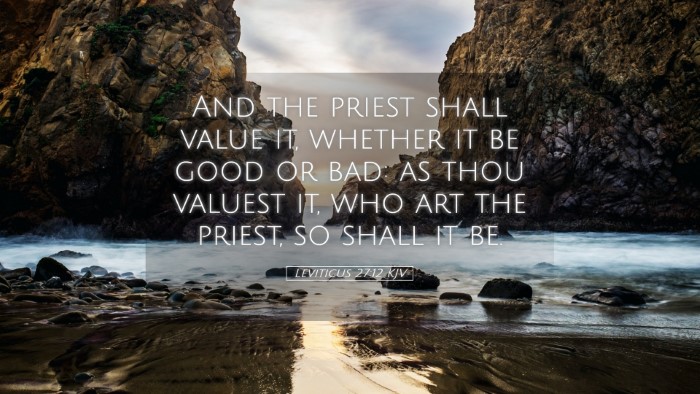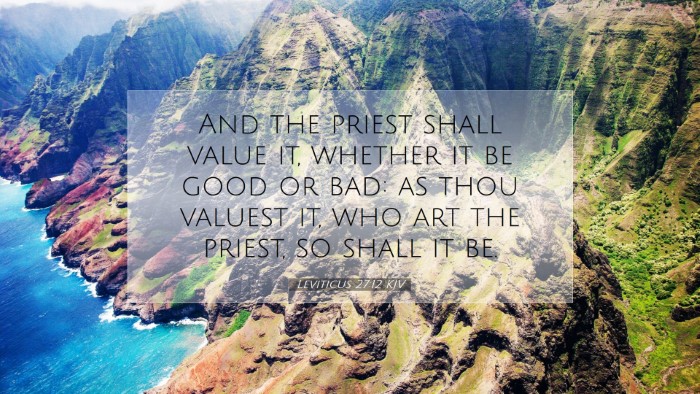Commentary on Leviticus 27:12
Leviticus 27:12 states, "And if it be a beast, whereof men bring an offering unto the LORD, all that any man giveth of such unto the LORD shall be holy." This verse is situated within a passage discussing vows and the consecration of various categories of possessions to the Lord.
Context and Overview
This chapter fundamentally discusses the principles governing dedications to God, where individuals could vow specific possessions (including animals) to the Lord. The mark of holiness is central to understanding the language and implications of this verse. It is imperative for scholars to observe how the holiness of items dedicated to God reflects both the value of the relationship with God and the seriousness of the vow.
Insights from Matthew Henry
Matthew Henry emphasizes that the act of dedicating an animal that is acceptable for offerings signifies a strong commitment to honor God. He points out that by devoting such animals, individuals acknowledge God’s ownership over all creation. This underscores a theme of stewardship inherent in the Israelite understanding of their relationship to God and His law.
Henry further explains the idea of "holiness" as both separation from common use and complete devotion to God. He argues that items or beings consecrated to God, such as an animal, must be regarded with utmost reverence, reinforcing their sacred status among the community of Israel.
Insights from Albert Barnes
Albert Barnes provides a detailed exposition on the implications of the term "holy." According to Barnes, holiness in this context relates not merely to a physical state but to the spiritual relationship of the worshipper with God. He highlights that when an individual gives an offering, it is not only the act of giving that matters but also the intention behind it. This reflects a deeper theological principle of sincere worship.
Moreover, Barnes breaks down the aspect of valuing consecrated items and discusses how they are not to be treated like regular possessions. There is a stipulation that once something is dedicated to God, it cannot be exchanged or treated casually. This reinforces the idea of integrity in the relationship with God, emphasizing that our commitments must align with our worship.
Insights from Adam Clarke
Adam Clarke offers insights that connect this verse to greater themes within Leviticus regarding sacrifice and consecration. He states that such offerings serve a dual purpose: they are acts of worship and expressions of thanksgiving. Clarke also notes that the animal's holiness reflects its designated purpose as a means of reconciliation between the person and God.
Furthermore, Clarke points out the gravity of making vows to God and the corresponding responsibility of fulfilling such commitments. He stresses the importance of reflection when making these vows, drawing attention to the implications of acting intelligently and consciously when seeking to dedicate one's possessions to God. His commentary reminds readers that engaging in vows is not merely transactional but embodies a relational depth.
Theological Implications
As we analyze Leviticus 27:12, several theological implications can be drawn. Firstly, the verse echoes the concept of God’s ownership over all creation. This is a foundational belief in biblical theology: everything belongs to God. Therefore, when a believer gives something to God, it is a recognition of that divine ownership and a manifestation of trust.
Secondly, the holiness attached to offerings directly challenges believers to consider the nature of their offerings. In modern context, this calls for discernment about what one gives to God, not only material possessions but time, talents, and energy. The verse serves as a reminder that our offerings should reflect our faith in God’s promises and goodness.
Practical Applications
From Leviticus 27:12, several practical applications emerge for pastors, theologians, and students of the Bible:
- Commitment to God: Individuals are encouraged to make thoughtful, sincere commitments to God rather than impulsive vows.
- Respect for holiness: There should be a continuous acknowledgment of the holiness of what is dedicated to God, influencing how we treat our gifts and offerings.
- Integration of faith and action: This verse serves as a reminder that our actions should reflect our beliefs, fostering integrity in our worship and dedication to God.
Conclusion
In summation, Leviticus 27:12 encompasses profound understandings of dedication, holiness, and the relational dynamics between God and humanity. The insights drawn from esteemed public domain commentaries underscore the importance of approaching our offerings with an understanding that they symbolize much more than just a transaction; they embody our devotion, integrity, and acknowledgment of God’s sovereignty in our lives. This verse, while embedded in the rituals of ancient Israel, continues to speak to contemporary believers, urging them to reflect on the nature of their sacrifices to God in light of His holiness.


